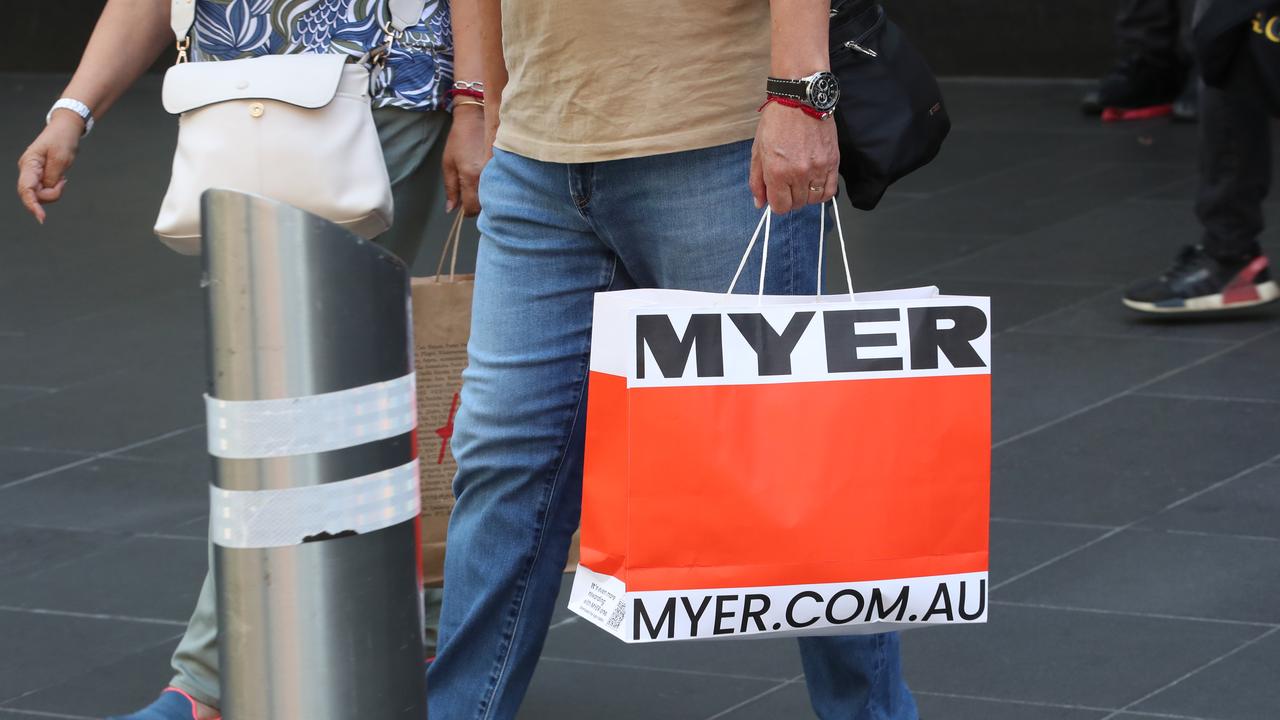Australia Post accused of ‘cynical’ hit to small business
Customers have been landed with an enormous price hike by Australia Post, just before the start of the busiest time of the year.

Australia Post has been accused of gouging small businesses with the “biggest hike in three decades” to its parcel prices, just before the start of the busiest time of the year.
On Monday, average parcel prices at the national postal service rose by 7-8 per cent — roughly four times the rate of inflation — according to rival delivery firm Sendle.
“This is the biggest hike in three decades,” said Sendle founder James Chin-Moody, who described it as an “outrage”. “It seems to us this is a very cynical attempt to gouge small business at the busiest time of the year.”
Australia Post disputes that figure, putting the weighted average increase at around 3-4 per cent. It insists many customers will actually save money under the new pricing model, which moves from a weight-based to a size-based system for domestic parcels under 5kg using its new packaging.
But for customers and businesses using their own packaging, the new price tiers will apply on a weight basis. When compared to the previous pricing for the same weight tiers, the increases are significant.
A 500g parcel is increasing by 7.8 per cent from $8.30 to $8.95, a 1kg by 8 per cent from $11.30 to $12.20, a 3kg by 8.1 per cent from $14.20 to $15.35 and a 5kg by 7.6 per cent from $17.20 to $18.50.
Mr Chin-Moody noted that small businesses were “actually doing it tough” compared with the broader retail sector. “So for Australia Post to put up a price hike that is so enormous is just tone-deaf,” he said.
Earlier this month, Australia Post announced a 70 per cent decline in full-year profit to $40.6 million, off the back of a sharp decline in its letters business.
Letter revenue fell nearly 9 per cent to $2.22 billion, but total parcel and services revenue grew 7.7 per cent to $4.76 billion. Domestic parcel revenue was up 9 per cent and international parcel revenue was up 16 per cent.
The government-owned company has previous warned that “for every $1 of letters revenue we lose, we need to find $2 of parcels revenue”.

Jacinta Taylor, owner of Melbourne-based online business The Laminated Cotton Shop, sells eco-friendly versions of disposable or plastic household items like waterproof bags, placemats and aprons.
“I turned off from Australia Post earlier this year,” she said. “The prices were becoming something I couldn’t sustain. The other thing was that to achieve slightly better pricing on those parcels you have to buy in bulk. In terms of cashflow for a small business it wasn’t sustainable.”
Sendle claims to offer rates up to 70 per cent cheaper than Australia Post. In 2017 it won a David and Goliath trademark battle against the service over its “Post without the Office” tagline.
To piggyback off the price hikes, Sendle has announced a suite of price relief measures it has dubbed a “small business relief package”, with international delivery rates dropping and its 2kg parcel increasing to 3kg.
The price relief measures also include a new price guarantee, which ensures that all size-for-size same city and national parcels are cheaper than Australia Post. Sendle claims the guarantee means small businesses can save 20 per cent on average and up to 83 per cent in some cases.
Sendle, which earlier this year raised $20 million in funding, declines to reveal revenue or parcel volumes but says it has “done over six billion kilometres of parcel deliveries”. “That’s the equivalent of going from here to Pluto,” Mr Chin-Moody said.
“We also believe we’ve touched over half of Australian households. We’re about creating an alternative in a market where there is basically a monopoly provider who’s still behaving like a monopoly. We’re saying, enough is enough.”
Australia Post has defended the changes, which include the introduction of a domestic flat-rate product for parcels up to 5kg called “If It Packs, It Posts”, doing away with 256 different product prices based on weight and zone in favour of four flat rates.
The changes apply only to the over-the-counter products, which make up less than 20 per cent of Australia Post’s total parcels. It’s understood the changes are aimed at simplifying the post office experience in order to drive volumes and allow staff to up-sell, rather than just increasing prices.
“Many of our customers will actually pay less, especially those sending small heavy items and those sending to or from rural and regional Australia,” a spokesman said.
“If It Packs, It Posts is the biggest change Australia Post has made to its parcel products in nearly 30 years. We’re moving to national flat rate pricing for sending parcels anywhere in Australia — much simpler for customers and providing certainty of price upfront.”
Australia Post previously offered national flat rates based on weights, with tiers of 500g, 1kg, 3kg and 5kg. From Monday it has moved to a national flat rate based on satchel sizes of small, medium, large and extra large.
“These changes will impact individuals and micro/small businesses that send their parcels over the counter in a post office or buy prepaid satchels via Auspost.com.au,” the spokesman said.
“Like stamp prices, which are a flat rate no matter how far a letter travels, these new flat rate parcel prices mean we are being fairer to more Australians. This model is already used in New Zealand, the US and Canada.”




